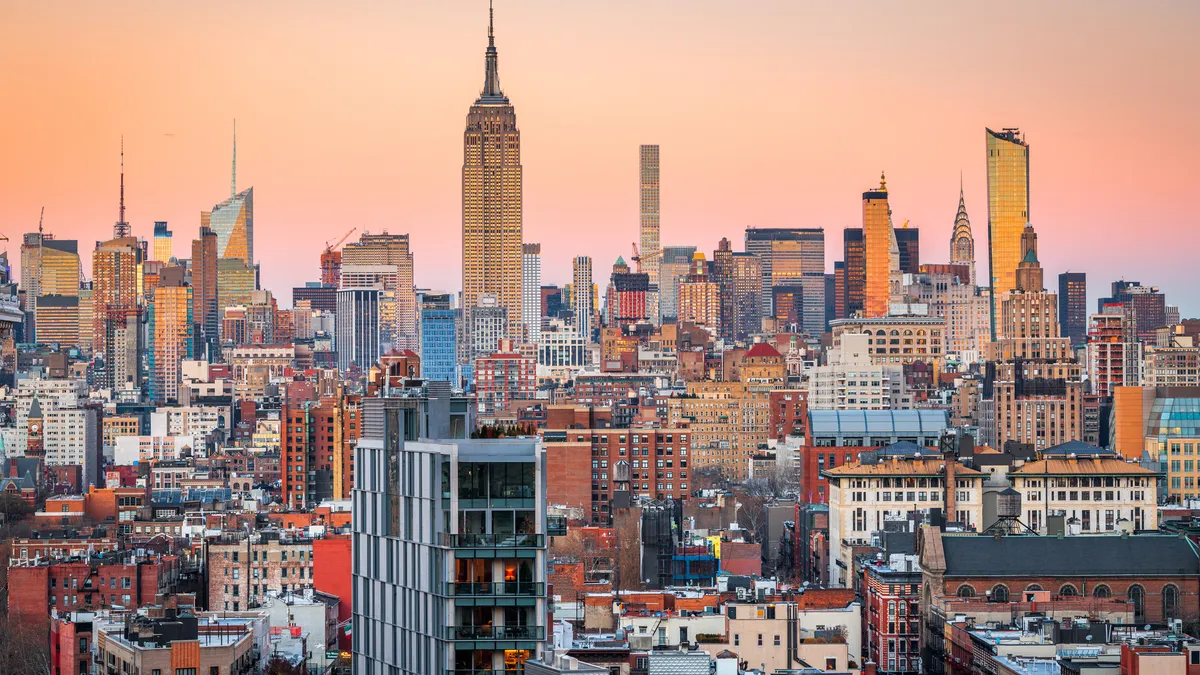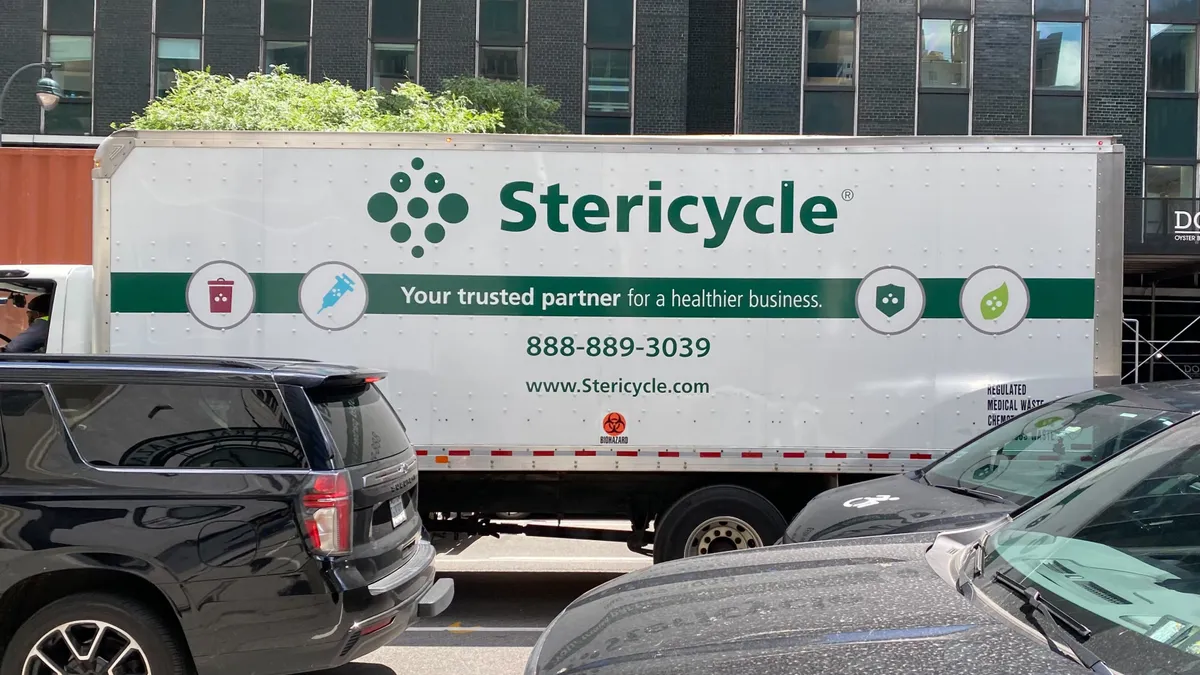After roughly a decade of debate, three sanitation commissioners, two mayors, one pandemic and a protracted contract negotiation process, the New York City commercial waste market is about to see a major change.
The Department of Sanitation’s recent selection of 18 companies for a set of non-exclusive contracts, with three companies per zone, capped off years of speculation about who would be left standing from the city’s current open market system. This new program, created by a 2019 law, aims to reduce truck traffic while improving sustainability and safety within a sector that handled nearly 2.8 million tons of commercial waste in 2022.
This system was supposed to be fully implemented by 2024, but the pandemic prolonged the wait for local and national companies that wondered if they would win coveted 10-year contracts or potentially have to exit the market.
Due to this uncertainty and challenging operating factors, the pool of licensed commercial waste haulers in the five boroughs had already shrunk — dropping from 83 in 2017 to 57 in 2022. Within that group, only 10 companies had more than 3% of market share. The pandemic’s heavy toll on New York played a role — with commercial volumes dropping by nearly 38% from 2019 to 2020 and still not fully recovering.
New York’s commercial waste market has been fully private since the mid-1950s, and reforms were considered by city officials since at least the ‘80s, but it has long resisted change. Efforts to welcome national industry companies to offset the presence of organized crime during the ‘90s were largely unsuccessful, and even this latest contract opportunity didn’t lead to a notable influx of new entrants.
Of the 30 companies involved — including subcontractors — 26 already operated in New York during 2022. These companies handled an estimated 86% of the city’s commercial waste that year, led by major names such as Action Environmental and Waste Connections.
DSNY, which declined an interview, said via email its decisions came after “an extremely complex procurement process” that involved reviewing “tens of thousands of pages of documents.” The agency touted a focus on pricing, which led to average maximum pricing coming in below the city’s current rate cap for 14 of the 20 zones.
“Like the current [Business Integrity Commission] rate cap, these are maximum allowed prices and businesses may continue the practice of negotiating for lower pricing as carters compete against one another within their awarded zone,” said Joshua Goodman, deputy commissioner of public affairs. “This pricing is a ceiling, not a floor.”
Overall, Goodman said this system will mark a departure for a local industry with “a flawed history” that “has long been inefficient, hazardous and unsustainable.”
The heavyweights
Before the final 18 companies were selected, the field of prospective bidders had already narrowed for various reasons. Of the 46 companies that participated in both parts of the RFP, only 34 entered the last round when accounting for joint ventures or subcontracting arrangements.
In the end, the market’s current two largest players — Action (a subsidiary of Interstate Waste Services) and Waste Connections — were also the ones that received the most contracts.
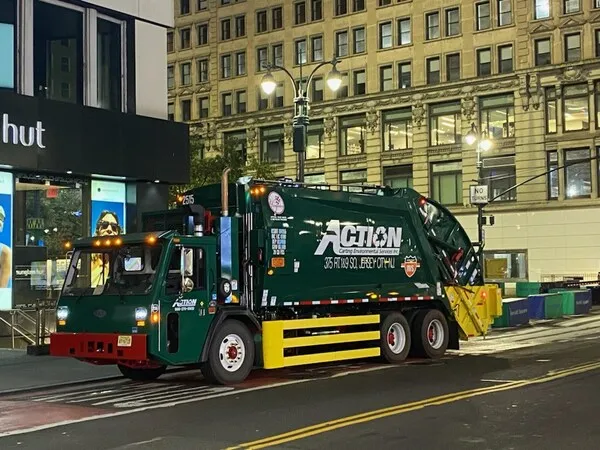
The award of 14 zones and one citywide contract for containerized compactor service was a culmination of sorts after years of investment in the Action platform.
The company scaled its market share with acquisition of WM’s local hauling assets in 2007 and Republic Services’ assets in 2010. Then in 2020, private equity investor Littlejohn & Co. helped make IWS a vertically integrated company with the purchase of the rail-served Apex Landfill in Ohio. Last summer, another new private equity investor, Ares Management, recapitalized the business to continue this growth and support future plans in New York City.
“A big part of the acquisition of Apex and bringing Littlejohn in was to make sure that we had long-term disposal for all the volume coming out of New York City and that we're doing it through rail,” said Brian D’Amico, executive chairman of IWS. “One of the core tenets of zoning was to take trucks off the road. The more we can do to eliminate truck traffic, the more effective we could be not only bidding for the zones, but actually executing on those zones.”
D’Amico said another key move was hiring Josh Haraf as the company’s vice president of New York City operations in 2022. Haraf started his career as a laborer at a transfer station, later working his way up through many jobs with WM in the Chicago, Houston and Toronto markets. Haraf said New York was likely the “toughest operating environment in North America,” requiring a focus on safety and dedicated resources.
Action has a MRF in the Bronx, plus transfer stations and other hauling locations in the city. The company built a new hauling depot in Brooklyn last summer and is working to expand its rail transfer capabilities. IWS is also building a MRF in New Jersey that can support volumes from these zones.
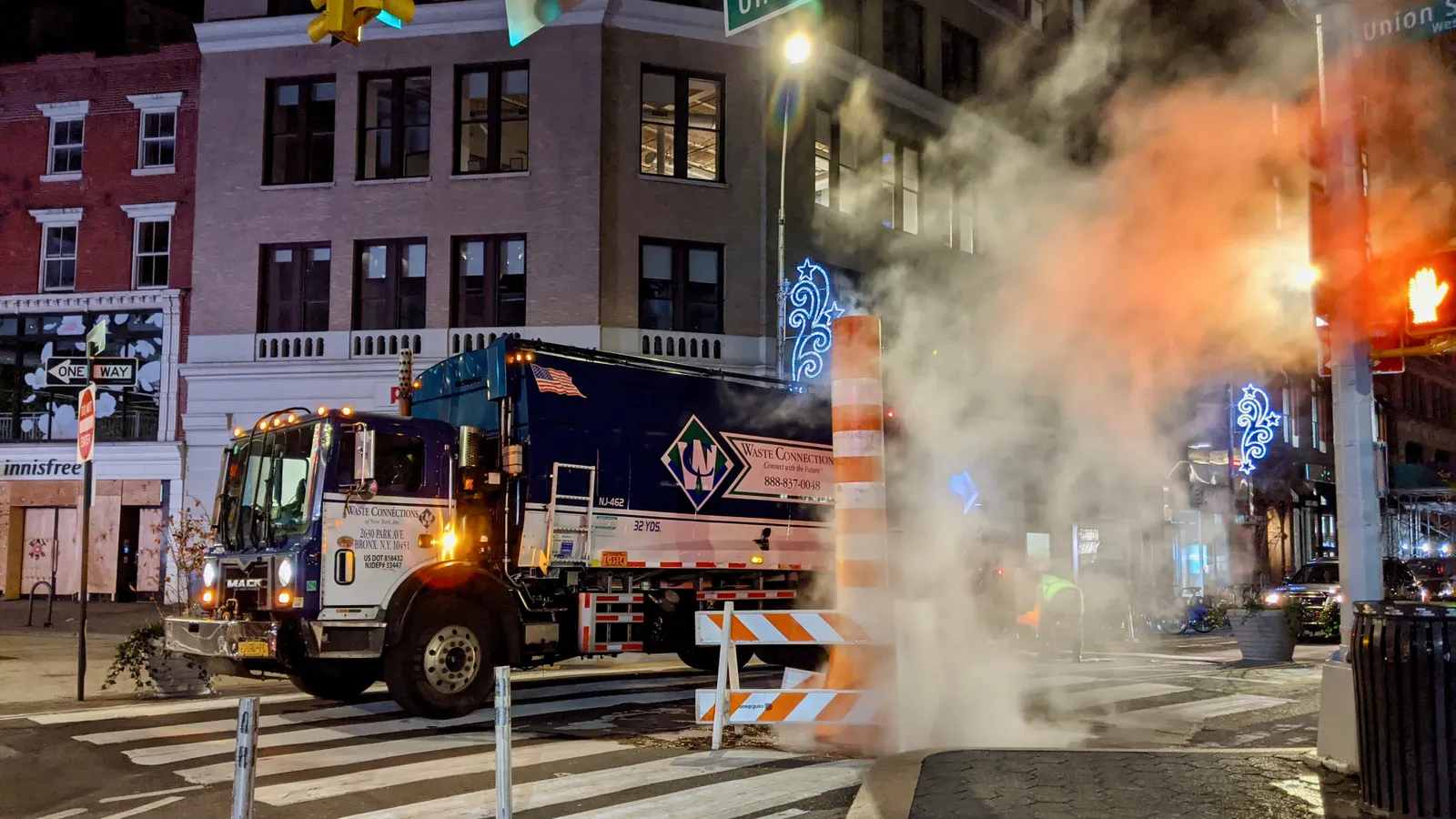
Waste Connections, which netted 12 zones and one citywide contract, was similarly well-positioned following its 2016 acquisition of Progressive Waste Solutions. CEO Ron Mittelstaedt previously said the prospect of a zone system was one element that made the local market attractive.
The company also has multiple transfer stations and hauling locations in the city. Andy Moss, the company’s Northeast division government affairs manager, said it could make further infrastructure investments.
“We are very pleased with the Department’s commercial waste zone award and look forward to making it a successful rollout, including seeing a reduction in vehicle miles traveled,” he said via email. “Waste Connections is engaged in continuous improvement for all our facilities. There are certain commitments we made for the commercial waste zone system that we will be implementing in the future.”
Walter Spracklin, an analyst at RBC Capital Markets, said in a recent report that the company “has an edge over smaller competitors given its relatively larger size, service quality, and decentralized operating approach.” Spracklin also said the company’s rail transfer assets, bolstered with last year’s purchase of Arrowhead Environmental Partners, would give it a further advantage.
WM was an eligible bidder during the RFP’s initial round, but the industry giant declined to say if it bid on the second part and was not on the final list. Even though its trucks won’t be returning to the streets of New York, WM still maintains a solid position as an operator of multiple transfer and recycling assets in the city.
Hometown winners
While none of the other companies that won zones are vertically integrated for disposal, many believe they’re still well-positioned to compete for business.
The next-highest winner was a joint venture between locally-based haulers Mr. T Carting and Boro-Wide Recycling, totaling six zones and a citywide contract.
Tom Toscano, president of Mr. T, said the outcome means a pending merger between the two companies that was contingent on zone awards will now move ahead, as will planned investments. The two companies will likely combine their existing MRFs. A Brooklyn transfer station affiliated with Mr. T will also become organics-only once a Boro-Wide transfer station is converted to become a rail-served site, which likely be a multiyear process.
Royal Waste Services netted five zones, which some observers noted could potentially mean a reduction in market share for one of the city’s larger locally-owned haulers. The company could not be reached for comment.
New York Recycling Solutions, a joint venture between Royal and Cogent Waste Solutions, also received two zones. Brooklyn-based Cogent came out with four zones on its own.
“We are honored to have been awarded these zones and are committed to continuing to uphold the highest standards in the industry. We look forward to collaborating closely with DSNY, BIC and all other stakeholders to ensure the success of our shared objectives in advancing sustainable waste management practices across New York City,” said Vice President Nino Tristani via email.
Brooklyn-based Filco Carting also received three zones and one citywide contract.
“We're thrilled with what we got awarded. It's what we bid on,” said CEO Domenic Monopoli. “I think it positions Filco in a very good place for the future."
Filco, which also recently expanded into New Jersey, could potentially invest in recycling infrastructure as part of the award. Monopoli said he still has an active permit from running a paper recycling facility in the past and could decide to revive those operations once the company has a better sense of the waste stream in its zones.
“The amount of paper in the waste stream in the city of New York has gone down so dramatically that we just have to see if it's cost effective at this point,” said Monopoli.
Recycle Track Systems, one of the youngest companies awarded, also came out with three zones and a citywide contract. While the broker does not have its own trucks, the company has long maintained that its technology for customer service, collection tracking and waste diversion statistics would be a good fit for DSNY’s vision of a modernized system.
"We are thrilled to continue our service throughout New York City and are eager to deepen our collaboration with our designated carters — Winters Bros., City Waste Services of NY and Regency Recycling. Each of whom shares our long-standing dedication to serving all five boroughs, reinforcing our collective pursuit of a healthier, safer, and more sustainable New York City,” said CEO Gregory Lettieri in a statement.
Another notable tech-focused waste broker — Rubicon — did submit a bid but was not selected.
Long Island-based Winters Bros. Waste Systems showing up on RTS’ list of designated carters amounts to the most notable local market entry as a result of the waste zone system.
“We love the New York City marketplace and are enjoying opportunities to provide quality services to customers in the Big Apple,” said Chief Operating Officer Kevin Nolan in a statement. “Winters Bros. closely followed the city’s process to develop commercial waste zones, but opted not to submit bids for any zones. Instead, we chose to serve as a subcontractor as we continue to expand our New York City line of business.”
In addition, Metropolitan Paper Recycling received two zones. #1 Waste & Recycler, 5 Borough Waste Removal, Basin Haulage, Classic Recycling, Crown Waste, Green Environmental Services, Industrial Carting, Liberty Ashes and Priority First Carting also received one each.
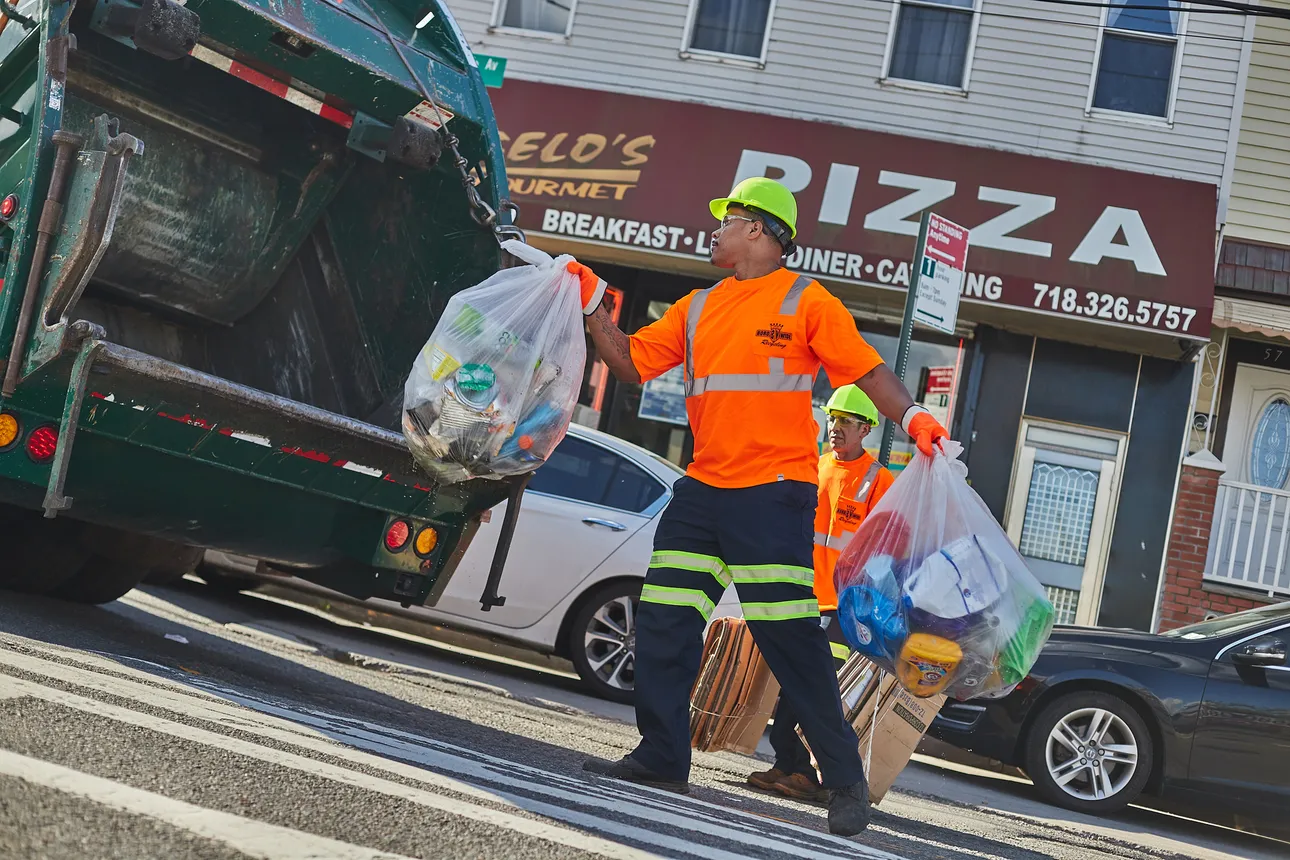
A reshaped market
Based on DSNY’s analysis, 31 companies that were active in 2022 — including 16 who participated in the full RFP process — will not be involved in the program.
That means these companies can no longer collect commercial waste in the city once implementation is completed by 2026. The agency said they could potentially look for business outside the city, or focus on streams such as C&D that are not part of the program.
"Like many others I'm a bit surprised that several well-regarded companies that have collected waste in New York City for decades were not selected for at least one zone,” said David Biderman, president of Biderman Consulting.
Notable absences from the list, according to observers, include local companies such as M&M Sanitation Services, D&D Carting and Century Waste Services. It’s not known if any of those companies could be subcontractors, as DSNY has not released a full list.
Liverpool Carting, which also didn’t make the cut, is not a subcontractor and is now left with a tough decision. The three-truck operator, which serves clients on Manhattan’s Upper East Side, has been in business since 1945 but may now be faced with an abrupt end.
“When you look at my history and my record and my safety and all of that, it was just completely disregarded ... They never gave any credibility to all of the things that I’ve done,” said owner Gino Fava, questioning why DSNY couldn’t have added a fourth company to the zone in his area.
Fava is exploring his options and remains focused on providing good service in the current open market system.
DSNY announced plans to begin transitioning customers in the first zone — Queens Central — this fall, but hasn’t shared specifics for the other 19. During this interim period, the companies that did win are preparing to move as soon as needed and eyeing a chance to grow their market share after years of anticipation.
“Our view is that there is a very, very high probability we will be doing more in the five boroughs than than we do today,” said Action’s D’Amico, envisioning the potential for “substantial growth.”
Smaller operators are similarly bullish, looking forward to competing against companies of any size once implementation is complete.
“We maintain the best possible service, we have personal connections with customers, we're available 24/7,” said Filco’s Monopoli. “We are not afraid to be in those zones with the bigger fish. We welcome it.”
In the meantime, the long-awaited clarity of contract awards may also spark more movement before implementation is complete.
"There will be a fair amount of further market consolidation in 2024 and 2025 as CWZ implementation starts,” said Biderman. “The companies that didn't win zones are trying to figure out whether they're better of running their company for the next two-plus years and then closing down, or better to take an offer now."



